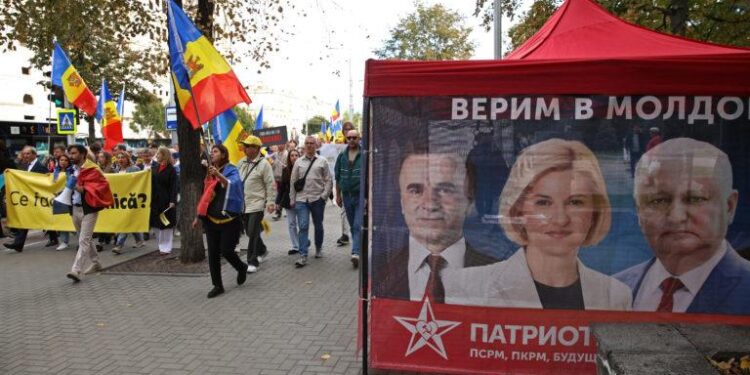As Moldova gears up for its upcoming election, the stakes extend far beyond its borders. This small Eastern European nation, nestled between Romania and Ukraine, stands at a geopolitical crossroads with implications that ripple across the entire continent. With growing tensions in the region and ongoing challenges to democratic institutions, Moldova’s electoral outcome could influence the future stability, security, and political alignment of Europe as a whole. Understanding why this election matters is essential for grasping the broader dynamics shaping the continent today.
Moldova at a Crossroads Impacting Regional Security and Democratic Stability
Moldova’s upcoming election represents more than a national political event; it stands as a pivotal moment that will influence the strategic equilibrium of Eastern Europe. By navigating between pro-European integration aspirations and lingering pressures from pro-Russian factions, the election outcome will reverberate across borders. The choices made at the ballot box could determine whether Moldova deepens democratic reforms and aligns more closely with European institutions or veers toward increased authoritarianism and geopolitical vulnerability. This decision holds implications not only for Moldova’s internal stability but also for the broader security architecture of the region.
Key factors shaping this high-stakes election include:
- Energy security: Moldova’s reliance on Russian gas pipelines makes its political alignment critical for energy supply chains throughout Eastern Europe.
- Rule of law and governance: Efforts to combat corruption will either strengthen democratic institutions or exacerbate existing vulnerabilities.
- Regional migration flows: Political instability could trigger increased movement of people, impacting neighboring EU states.
Civic participation, media freedom, and foreign influence campaigns all intertwine to create a complex backdrop where the electorate’s decision resonates far beyond Moldovan borders.
| Factor | Potential Impact | Regional Relevance |
|---|---|---|
| European Integration | Strengthen democratic reforms | Greater EU stability and cohesion |
| Pro-Russian Influence | Political fragmentation | Heightened regional tensions |
| Economic Policies | Attract foreign investment | Boost cross-border trade |
The Election’s Role in Countering External Influence and Protecting European Unity
Moldova’s recent election serves as a critical battleground in the larger contest to safeguard European integrity against mounting external pressures. As geopolitical tensions intensify, this democratic exercise offers a robust mechanism for the Moldovan electorate to assert their sovereignty and resist undue influence from powers seeking to destabilize the region. The outcome will not only shape Moldova’s domestic policies but also signal the resilience of European values – democracy, rule of law, and territorial unity – in the face of external attempts to fracture the continent’s cohesion.
Several key elements underscore why this election has broader implications for the European project:
- Fortifying democratic governance: Reinforcing transparent, accountable leadership that can withstand covert campaigns of disinformation.
- Protecting energy security: Choosing representatives committed to diversifying energy sources and reducing dependency on hostile external actors.
- Upholding regional stability: Preserving a united front among EU and associated states to prevent geopolitical vulnerabilities.
The election thus acts as a litmus test – not just for Moldova’s political trajectory, but for the broader European strategy to maintain unity and counteract destabilizing foreign influence.
| Focus Area | Election Impact |
|---|---|
| Democratic Integrity | Strengthened institutions against external manipulation |
| Energy Policy | Increased resilience through diversification |
| Security Cooperation | Enhanced regional partnerships within Europe |
Policy Recommendations for Supporting Moldova’s Democratic Resilience and Economic Development
Strengthening Moldova’s democratic institutions calls for targeted investments in judicial independence, civic education, and transparent electoral frameworks. This includes robust support for anti-corruption bodies to ensure accountability and public trust, which form the backbone of resilient democracies. International partners should prioritize capacity-building initiatives for local media to foster a pluralistic and informed public discourse, countering misinformation campaigns that threaten democratic integrity.
On the economic front, policies must focus on creating sustainable growth by:
- Encouraging foreign direct investment through simplified regulations and guarantees against political instability;
- Supporting small and medium-sized enterprises with access to finance and innovation hubs;
- Improving infrastructure connectivity to integrate Moldova more deeply with European markets;
- Promoting green energy projects to reduce dependency and stimulate job creation.
These strategic approaches will not only secure Moldova’s future but will act as a stabilizing force throughout Eastern Europe.
| Policy Area | Key Actions | Expected Outcomes |
|---|---|---|
| Judicial Reform | Enhance independence and transparency | Greater public trust, reduced corruption |
| Media Support | Training and funding for independent outlets | Informed electorate, reduced misinformation |
| Economic Growth | Streamlined investments, SME support | Job creation, regional integration |
| Energy Transition | Develop renewable energy projects | Energy security, sustainable economy |
Insights and Conclusions
As Moldova heads to the polls, the stakes extend far beyond its borders. This election will not only shape the country’s future but also send clear signals across Europe about the region’s political direction and stability. For observers and policymakers alike, understanding the outcomes in Moldova is crucial, as the nation continues to navigate the complex interplay of East and West. In this pivotal moment, Moldova’s democratic choice will resonate through Europe, influencing security, diplomacy, and the broader geopolitical landscape for years to come.














![Poland and France push ahead with defense pact after Paris talks [VIDEO] – TVP World](https://europ.info/wp-content/uploads/2026/01/3036754-poland-and-france-push-ahead-with-defense-pact-after-paris-talks-video-tvp-world-120x86.jpg)

